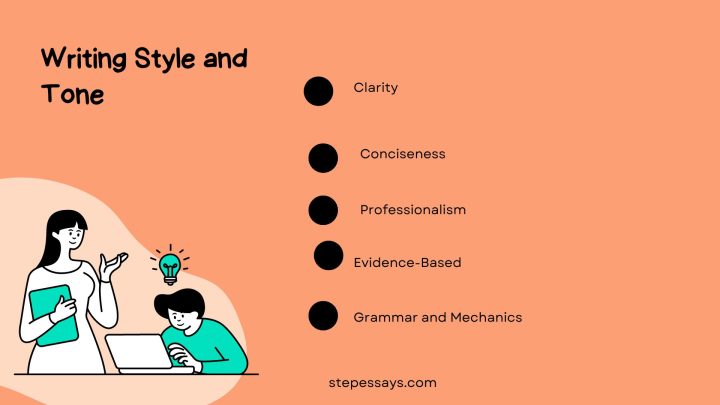Introduction
In the field of academia and professional discourse, the ability to craft an effective formal discussion post is invaluable. Whether you’re engaging in an online course, participating in a professional forum, or contributing to a scholarly debate, mastering the art of formal posting is essential for conveying your ideas clearly, persuasively, and respectfully. In this comprehensive guide, we will look into the complexities of writing a perfect formal post, covering everything from structure and tone to research and etiquette.
Understanding the Purpose of a Discussion Post
Before diving into the specifics of crafting a formal post, it’s crucial to understand its purpose. Formal posts serve as a platform for sharing insights, analyzing concepts, and engaging with peers or colleagues in a structured manner. They provide an opportunity to contribute meaningfully to ongoing conversations, advance knowledge, and develop critical thinking skills. Whether you’re presenting an argument, asking questions, or synthesizing information, your post should aim to stimulate thoughtful dialogue and promote intellectual exchange.
Structuring Your Post
A well-structured post lays the foundation for clear communication and effective engagement. Consider the following elements when structuring your post:
- Introduction: Begin with a concise introduction that sets the stage for your discussion. Clearly state the topic or question at hand and provide context to orient your readers.
- Thesis Statement: Present a clear and focused thesis statement that outlines the main argument or point you will be addressing in your post. This statement should encapsulate the essence of your position and guide the direction of it.
- Supporting Points: Develop your argument with supporting points, evidence, and examples. Each paragraph should focus on a specific aspect of your argument and provide relevant information to bolster your position.
- Counterarguments: Anticipate and address potential counterarguments to demonstrate a stepped understanding of the topic. Acknowledging opposing viewpoints shows intellectual honesty and adds depth to it.
- Conclusion: Conclude your post by summarizing key points and reiterating your thesis. Reflect on the significance of your argument and consider implications for further research.
Writing Style and Tone

Discussion
Maintaining a formal tone and style is essential when crafting its posts in academic or professional settings. Consider the following guidelines:
- Clarity: Strive for clarity and precision in your writing. Use straightforward language and avoid jargon or overly complex terminology that may obscure your meaning.
- Conciseness: Be concise and to the point. Focus on conveying your ideas succinctly, avoiding unnecessary repetition or verbosity.
- Professionalism: Maintain a professional demeanor in your writing, refraining from informal language, slang, or emotive expressions. Respectful and courteous communication is key to fostering productive dialogue.
- Evidence-Based: Support your arguments with credible evidence and references. Draw upon reputable sources to lend credibility to your assertions and strengthen the validity of your arguments.
- Grammar and Mechanics: Pay close attention to grammar, punctuation, and spelling. A well-edited post demonstrates attention to detail and enhances readability.
Research and Citations
Effective posts are grounded in thorough research and scholarly inquiry. Follow these guidelines when conducting research and citing sources:
Research:
Research plays a fundamental role in the construction of effective posts, serving as the bedrock upon which informed arguments are built. Through diligent research, individuals gather relevant information, examine diverse perspectives, and deepen their understanding of the topic at hand. Moreover, research citations lend credibility and authority to posts, offering readers a pathway to explore the underlying sources and verify the accuracy of the information presented.
By drawing upon reputable sources and providing proper citations, contributors not only bolster the validity of their arguments but also contribute to the scholarly discourse by acknowledging the intellectual contributions of others. Thus, research and citations form essential pillars of effective discussion posts, enriching dialogue and fostering a culture of intellectual rigor and integrity.
Critical evaluation is a cornerstone of crafting effective discussion posts, as it involves the careful examination and assessment of the information and sources being referenced. When contributing to discussions, it is imperative to scrutinize the credibility, relevance, and reliability of the sources used to support arguments. By critically evaluating sources, contributors can ensure that their posts are based on accurate and trustworthy information, thus enhancing the overall quality and credibility of the discourse.
Engagement and Etiquette
Engaging with your peers in a respectful and constructive manner is essential for productive discussions. Follow these principles of engagement and etiquette:
- Active Listening: Take the time to read and understand the contributions of your peers before responding. Active listening fosters meaningful dialogue and promotes mutual respect.
- Constructive Feedback: Provide constructive feedback and thoughtful responses to your peers’ posts. Acknowledge points of agreement, raise insightful questions, and offer constructive criticism when appropriate.
- Respectful Disagreement: Approach disagreements with respect and diplomacy. Express dissenting opinions in a courteous manner, focusing on the merits of the argument rather than personal attacks or hostility.
- Timeliness: Contribute to discussions in a timely manner, adhering to any deadlines or posting schedules established by the forum or course instructor. Give rise and consistent participation demonstrates commitment and engagement.
- Follow Guidelines: Adhere to any guidelines or instructions provided for discussion participation, including word limits, formatting requirements, and citation guidelines. Respect the rules of the forum or course community.
Conclusion
Crafting the perfect formal discussion post requires attention to detail, critical thinking skills, and effective communication strategies. By following the guidelines outlined in this comprehensive guide, you can enhance the clarity, professionalism, and impact of your contributions to academic and professional discussions. Whether you’re engaging in an online course, participating in a professional forum, or contributing to a scholarly debate, mastering the art of formal discussion posting is essential for success in today’s interconnected world.
